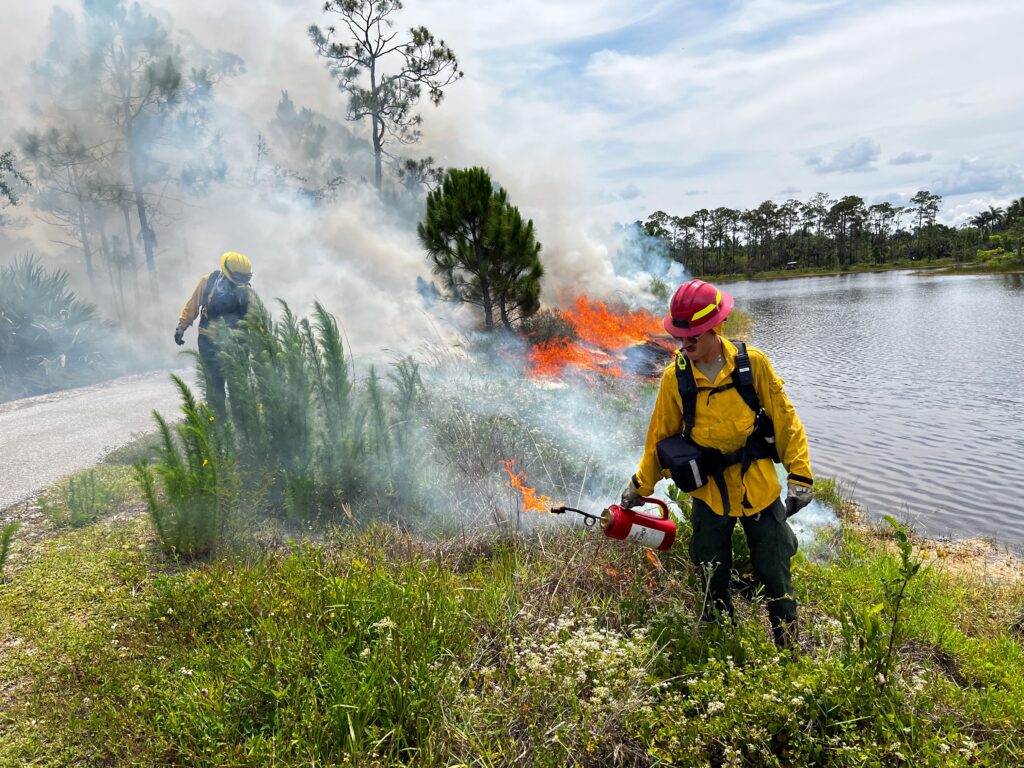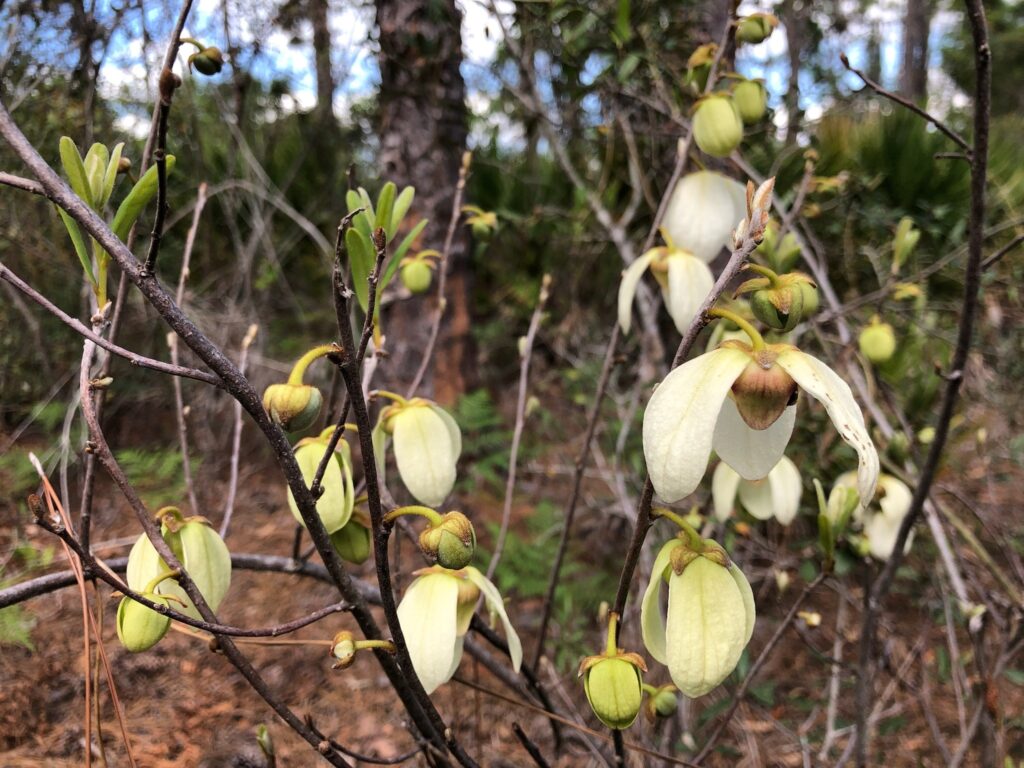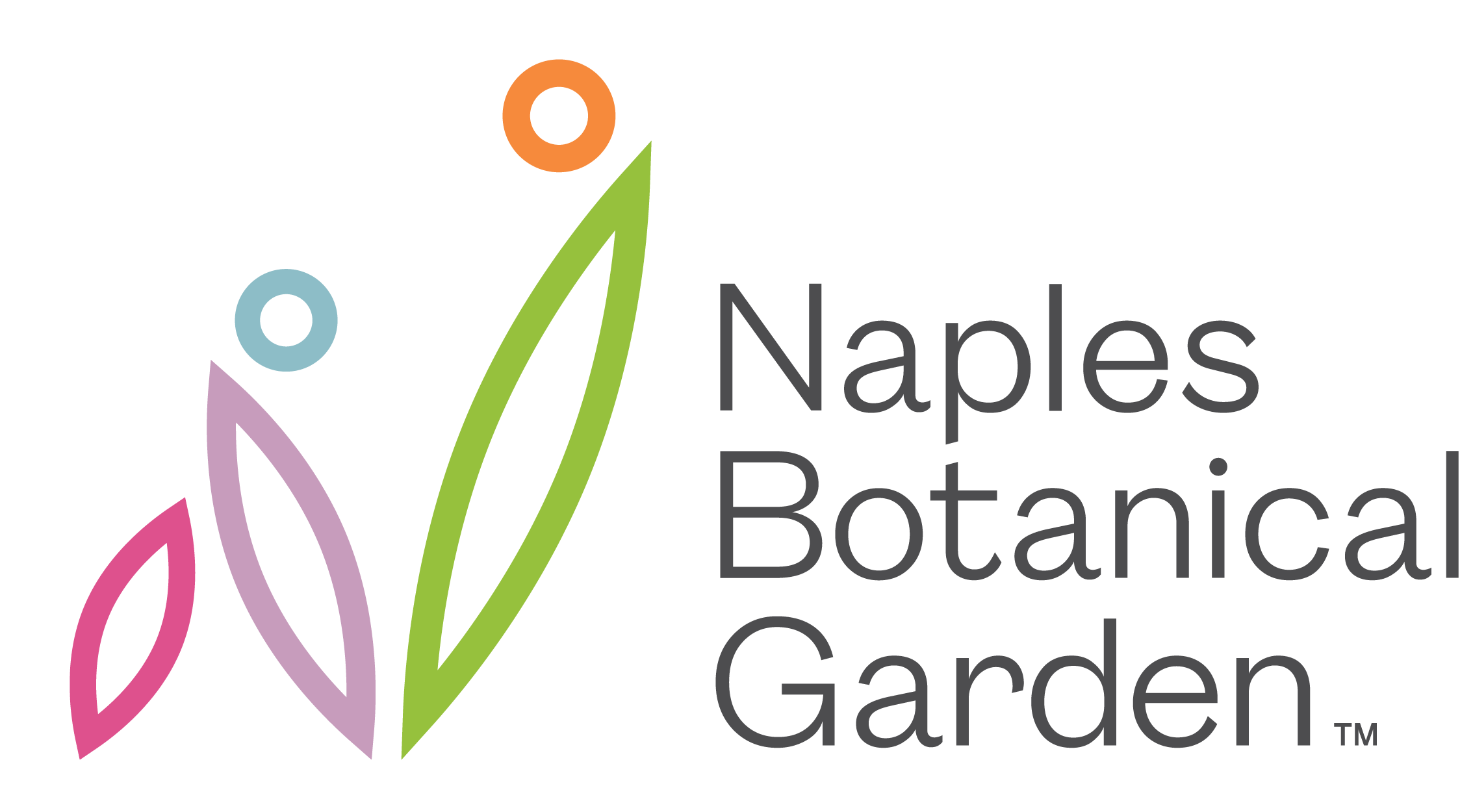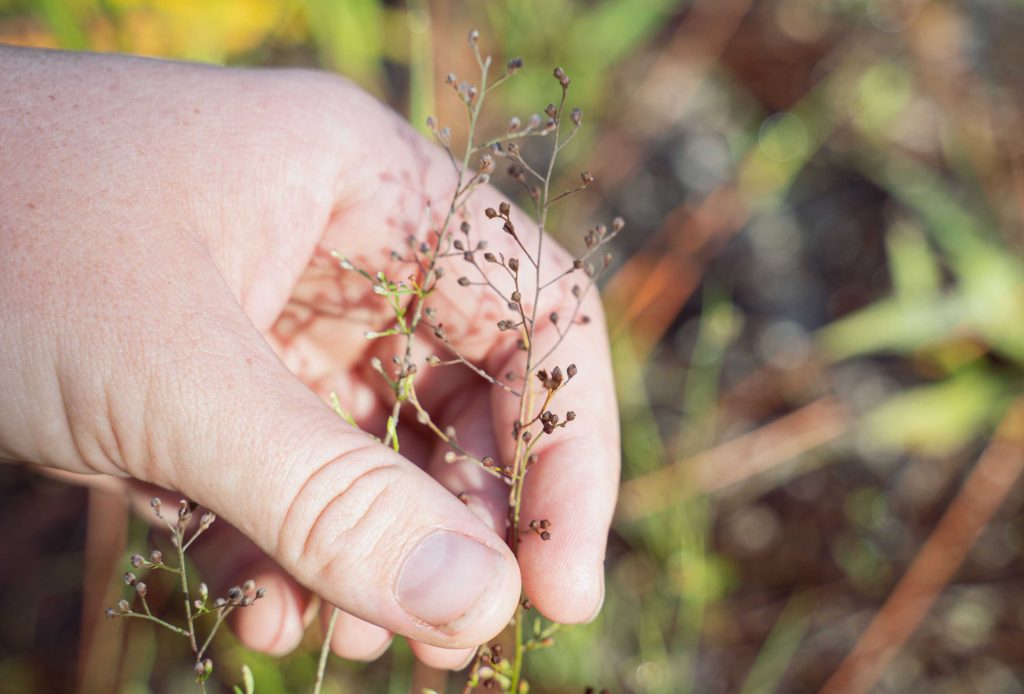A little more than half the Garden is set aside as native Southwest Florida habitat, managed for the protection of plants and wildlife. The Preserve harbors 400 native species and includes six unique habitats, including coastal scrub, a vanishing ecosystem where state-endangered species such as Curtiss’ milkweed (Asclepias curtisii) flourish. Our land management efforts include invasive plant management and prescribed burns, a procedure that replicates nature’s fire cycle.

Our property includes:
- Netted pawpaw (Asimina reticulata). This plant is a “crop wild relative,” or botanical cousin to the cultivated pawpaw (Asimina triloba). Increasingly, scientists cross genes of agricultural crops with those of their wild-growing relatives to increase the plants’ tolerance to drought, pests, temperature extremes and other stressors. The Garden is part of a nationwide collaborative identifying and conserving crop wild relatives.

- The state-endangered giant airplant (Tillandsia utriculata). The Garden is part of a multi-organization effort to save these plants, which have been decimated by an invasive insect.
- Yellow milkwort (Polygala rugelii), a species found only in our state. It faces mounting pressure from changing weather patterns and saltwater intrusion and currently is not found in any other conservation collections.


